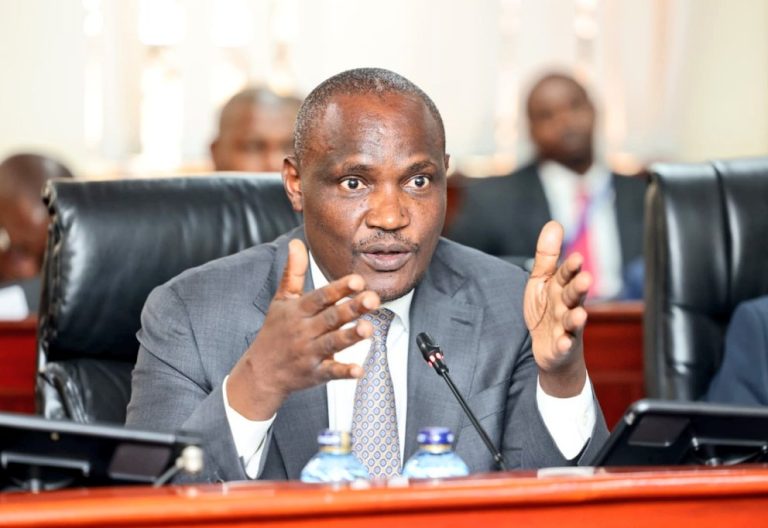National Treasury Cabinet Secretary John Mbadi has blamed Parliament for the persistent shortfall in school capitation funds, saying lawmakers are responsible for approving inadequate budgetary allocations.
Speaking during a Thanksgiving ceremony in Suba South on Friday, Mbadi defended the Treasury against accusations of failing to disburse capitation funds fully. He clarified that the government has been releasing all the money allocated in the national budget, but the funds remain insufficient to meet the required capitation targets for learners in public schools.
“We disbursed the whole amount allocated in the budget, but still, it is not enough,” he said. “We cannot give every child in Kenya the Sh22,000 per year because Parliament did not approve that amount.”
Government policy mandates that each student in a day secondary school should receive Sh22,000 annually, junior secondary school students Sh15,000, and primary school pupils Sh1,400. However, Mbadi revealed that due to budget constraints, the actual amount disbursed per secondary student is around Sh17,000—a trend that has persisted since former President Uhuru Kenyatta’s tenure.
He criticised MPs for questioning the Treasury over incomplete disbursements, noting that they are the same legislators who approved the budget cuts. In the most recent budget cycle, Parliament reportedly reduced the proposed capitation even further.
Mbadi also sought to correct what he termed as misinformation about the history of free education in Kenya. He stated that while President Mwai Kibaki introduced free primary education, it was President Uhuru Kenyatta who launched the free secondary education program though full capitation was never achieved under his administration either.
To bridge the funding gap, Mbadi proposed using the bursary funds under the National Government Constituency Development Fund (NG-CDF) which allocates 40 percent, or about Sh21 billion, for bursaries—to supplement capitation. He also called for a unified approach by consolidating all bursary schemes, including those from the GAAF and county governments, to ensure equitable support for all learners.
“We must stop playing blame games and work together to find practical solutions,” Mbadi said, noting that revenue constraints remain a challenge, but the Treasury is committed to improving allocations in future budgets.

